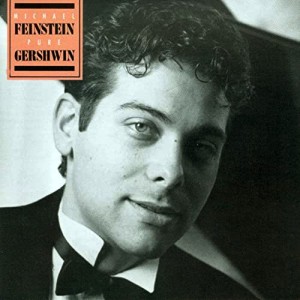

Isn't It Romantic
Michael Feinstein teams up with Hollywood arranger Johnny Mandel for his fourth album, which, as its title suggests, is devoted to romantic songs. Typically, an LP's worth of Feinstein performances isn't only a stroll down the Memory Lane of show tunes from movies and musicals of the interwar era, but also a musical research project into the archives where the singer toiled back in the days when he was an archivist for Ira Gershwin and Harry Warren. So, for example, when he leads off with the title song, written by Rodgers & Hart for the film Love Me Tonight, he doesn't only sing the lyrics everybody knows from its countless covers, he also throws in the lyrics from the second chorus, unheard since 1932, which come off as decidedly chauvinistic in 1988. Similarly, in rendering Jerome Kern and Dorothy Fields' "A Fine Romance" (from the 1936 film Swingtime), he sings a verse that was never used or published, but that was sung by the film's star, Fred Astaire, only on a recording that was never released. Such arcane additions to the material will interest especially those as fascinated by pop music history as Feinstein; to casual listeners, they may come as a surprise, altering impressions of songs otherwise so familiar. But Feinstein does not restrict himself to older material. He also introduces a new song, "Where Do You Start," composed by Mandel with lyrics by Marilyn & Alan Bergman, that, like so many songs of the ‘70s and ‘80s written in the style of pre-rock pop, sounds like it might as well have been penned just outside divorce court by a regretful ex-spouse. That's right, this album may consist of romantic songs, but they aren't always happy love songs. Just as often, they're unhappy ones, notably, a medley of Jerry Herman's "I Won't Send Roses" (another chauvinist's statement) and the heartbreaking "Time Heals Everything" from the 1974 musical Mack and Mabel (included as a bonus track on CD copies of the album). Feinstein's vulnerable tenor and often reverent performance style are actually better suited to the bittersweet stuff, especially when accompanied by Mandel's haunting and sentimental arrangements.
- 12 Songs
- 1988 Released
Comments

















